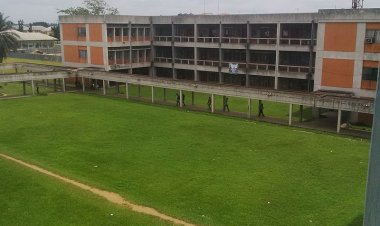Another Prolonged Strike Threatens Nigerian Universities
The unions are protesting the non-payment of salaries by the federal government, particularly highlighting the disparity in treatment between academic and non-academic unions. Despite previous strikes in 2022 and subsequent promises by the government, grievances remain unresolved, prompting the current industrial action.

As the strike initiated by the Senior Staff Association of Nigerian Universities (SSANU) and Non-Academic Staff Union of Educational and Associated Institutions (NASU) paralyzes activities in federal universities across Nigeria, urgent intervention by the federal government is crucial to resolve the issue and prevent further disruption to the academic calendar.
Since the strike began on March 18, 2024, activities in federal universities have ground to a halt, leaving students, including those scheduled to write Computer-Based Test (CBT) exams, stranded.
READ ALSO:Tragic Shooting at Abia State University Claims Life of 400L Student in Cult Clash
The unions are protesting the non-payment of salaries by the federal government, particularly highlighting the disparity in treatment between academic and non-academic unions. Despite previous strikes in 2022 and subsequent promises by the government, grievances remain unresolved, prompting the current industrial action.
While the Minister of Education has acknowledged the situation and promised government attention, the unions proceeded with the strike, citing lack of adequate response from authorities.
In addition to SSANU and NASU, the National Association of Academic Technologists (NAAT) has declared a three-day warning strike over similar salary payment issues.
The recurring strikes in Nigerian universities have far-reaching implications, prolonging students' academic journeys and exacerbating challenges in the education sector. With the current economic hardships facing the country, the need for uninterrupted education is more critical than ever.
Stakeholders, including the Ministry of Education, Ministry of Labour, and National Universities Commission (NUC), must urgently engage in dialogue to find a lasting solution to the ongoing crisis. The federal government, in particular, should prioritize resolving disputes to ensure the stability and quality of tertiary education in Nigeria.





